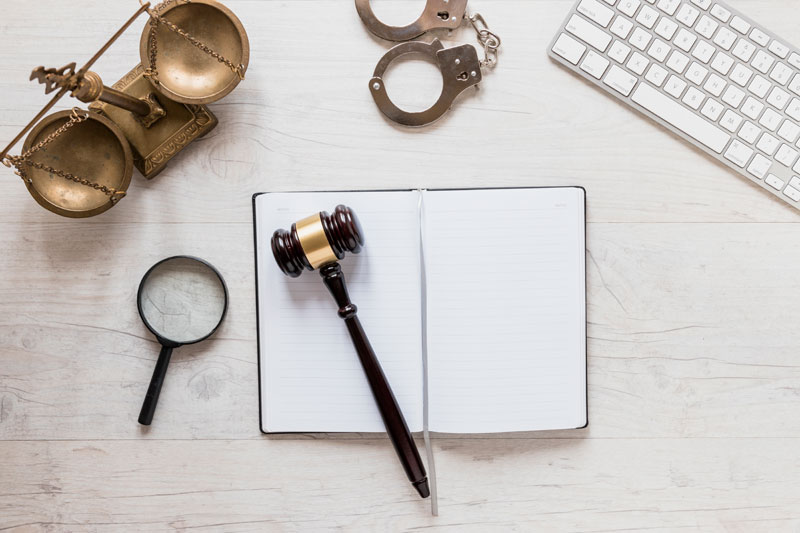
The legal system generates a huge and growing amount of recorded data, from court proceedings, judicial rulings, and witness statements, to wirings, briefs, interrogations, and depositions. Law firms rely on legal transcription services to convert these recordings into written text, and identify hidden facts and insights that could help win legal arguments.
Legal professionals are increasingly utilizing cutting-edge technologies and mobile apps to manage case files, conduct research, communicate with clients, and automate routine tasks. Thanks to advanced technologies and mobile capabilities, legal proceedings including depositions, can now be conducted remotely. Artificial intelligence is breaking many barriers and easing legal processes like never before.
Top Technologies that have Transformed Depositions
Here are some of the top technological changes that have become an integral part of practicing law:
- Artificial Intelligence
AI has taken depositions to a new level, automating several routine and repetitive tasks. According to financial giant Goldman Sachs, AI could automate 44% of the work performed by attorneys JD Supra points out that AI can used constructively to prepare for, conduct, and analyze depositions in a modern litigation practice. AI is helping lawyers:
- summarize documents and highlight key issues
- summarize materials obtained during pretrial discovery
- draft question outlines for use in the deposition
- delve into local laws applicable to the deposition
- perform background checks on deposition witnesses
- conduct sentiment analyses of witnesses, based on a written transcript, audio or video recording
Top AI tools for depositions include Casetext, CoCounsel, Everlaw Story Builder, DISCO Case Builder, and Reveal. Take Reveal, a powerful AI platform that can help lawyers quickly and thoroughly learn about a witness before the deposition. You can search for concepts, visualize data better, and analyze communications such as how much a deponent communicated with others. Reveal AI uses unsupervised machine learning to look for language expressing seven sentiments: Intent, Opportunity, Pressure, Rationalization, Sentiment Alternation, Positivity and Negativity. Using sentiment analysis, you can get look for emotionally charged communications involving – or about – the deponent. Its image recognition and labeling capabilities help you find the right picture for the deposition.
According to Clio Duo, its proprietary generative AI tech will serve as a “coach, intuitive collaborator, and expert consultant” for legal professionals by giving them:
- Personalized recommendations to enhance efficiency
- Reminders for pending and overdue tasks
- Bill generation assistance
- Document summarization and generation (for simple documents)
- Matter overviews
- Insights into law firm business performance
A popular chatbot, ChatGPT can produce narrative summaries of large amounts of data such as court opinions, pleadings, contracts, and deposition transcripts. You can customize this bot’s responses in a particular style, language, format and level of detail.
- Online File Storage
Online file storage tools offer quick and streamlined access to legal documents. Whether you’re working remotely or just collaborating from anywhere, document storage apps like DropBox and Google Drive allow you to organize, store, and access all your important files in one place. The 2020 Legal Trends Report stated that 79% of lawyers rely on cloud technology to store their firm’s data.
- Virtual Depositions and Real-time Transcripts
With virtual deposition tools it has become easier to for anyone to participate in a deposition remotely, saving time and travel costs. With a virtual deposition, lawyers can observe witnesses and speak with other participants, without requiring a physical presence. AI-based virtual deposition services like Readback convert speech to text as the deposition takes place. The draft of the depositions is available almost instantaneously. Human transcriptionists clean up the transcript in real-time, providing rough transcripts within an hour of the deposition, and certified transcripts within one day.
- Paperless Exhibits
Trials and depositions typically involve a lot of paper work. With advanced tools, lawyers no longer need to carry boxes of paper exhibits to the deposition. Exhibits can be preloaded and introduced on a computer or laptop and shared securely with other participating attorneys. They can decide mid-proceeding what to use and when, and share unlimited copies with everyone. These tools usually support all file types, including PDFs, JPEGs, MPEGs, and others.
- Video
Depositions recorded on video are used in place of live testimony. Video captures facial expressions, tone and gestures. Lawyers can review the footage and decide if the deponent will make a good impression in court. Depositions recorded on video are useful to prepare the witness for trial. Video also allow the jury to observe the witness closely. If a plaintiff who suffered injuries is unable to make it to the court, video depositions are used to show the injuries to the jury. With text-video synchronization, the written transcript of the deposition scrolls along with the video as it is being displayed.
- Mobiles apps
Lawyers utilize tablets and mobile apps to handle all aspects of their practice like annotating PDFs, scanning documents, introducing deposition exhibits, reading real-time transcripts, preparing and delivering trial presentations, distributing trial evidence and vetting potential jurors. Mobiles are more functional and convenient than carrying huge bundles of paper.
- Trial presentation tools
Trial presentation software enables visual depiction of complex concepts and situations. It allows you to underline, highlight underline, and redact key elements, find significant portions of documents, access presentations wirelessly, and more.
The bottomline is that technology has made conducting depositions easier. It has enhanced the accuracy, speed and quality of legal services and made them more cost-effective and accessible to a broader audience. Lawyers need prompt and error-free transcripts to support ongoing legal matter. Partnering with an experienced legal transcription company can ensure deposition transcription that captures everything that was said verbatim, including any questions, answers, and objections.
Optimize your litigation processes with professional legal transcription services.




